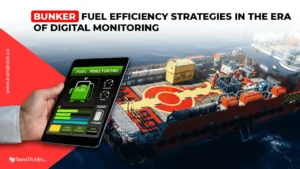The Impact of Accidents Due to Faulty Brakes on Trucks and How to Deal With Them
Posted on December 31, 2024 by Nur Wachda Mihmidati

Trucks are vehicles used to transport heavy loads, so they require a reliable braking system to ensure safety on the road. One serious problem that can occur with trucks is faulty brakes, which can be fatal. This article TransTRACK will take an in-depth look at the causes, effects, signs, as well as steps to prevent and treat brake failure in trucks.
Causes of Trucks Experiencing Faulty Brakes
Understanding the causes of brake failure is the first step in prevention. Here are some of the main causes that can lead to problems with a truck’s braking system:
- Braking System Malfunction: Damaged braking system components such as brake linings, discs, brake masters, or hydraulic systems can cause brake function to fail. Worn or damaged components need to be replaced immediately to avoid degrading brake performance.
- Overheating of the brakes: Trucks that carry heavy loads and drive for long periods of time can cause the brake temperature to rise excessively. Overheating of the brakes reduces their ability to generate the friction needed to stop the vehicle.
- Brake Fluid Loss: Truck braking systems use brake fluid to transfer pressure. Loss of brake fluid due to leaks can cause the brakes to become unresponsive or even fail completely.
- Poor Maintenance: Lack of regular maintenance of the braking system such as inspection of brake components, cleaning, or replacement of worn parts can increase the risk of brake failure.
- External Factors: Steep, slippery roads or heavy inclines can put more strain on the braking system, making it work harder and at risk of failure.
The Impact of Brake Failure on Trucks
When brake failure occurs, the impact is not only felt by the truck itself, but also by other people around. Here are some of the impacts that can arise:
- Accident Risk: Blown brakes can make the driver lose control of the truck. This can lead to accidents with other vehicles, pedestrians, or even single accidents that are dangerous for the driver himself.
- Impact on Drivers and Other Road Users: Drivers who experience brake failure may not be able to avoid an accident. Accidents due to brake failure have the potential to harm not only the driver, but also passengers and other road users who could become victims.
- Material and Financial Losses: Damage to the truck, the goods being transported, as well as the road infrastructure can add up to a huge financial loss. In addition, trucking companies can experience protracted operational losses due to the accident.
Signs of Faulty Brakes
Identifying braking problems early on can prevent more severe brake failure incidents. Some signs to look out for are:
- Sudden Change in Brake Performance: If the truck begins to show a decrease in braking power, such as less effective brakes, the driver should immediately be alerted to a possible problem with the brake system.
- Brake Pedal Feels Lighter or Unresponsive: A brake pedal that feels lighter or as if it is not working could indicate a brake fluid leak or damage to the hydraulic system.
- Strange Sounds or Vibrations When Applying the Brakes: Squeaking sounds or vibrations that occur when applying the brakes could indicate that the brake pads or discs are starting to wear out and require immediate attention.
- If the driver feels that the truck is still moving despite applying the brakes firmly, this is a major indication that the braking system is not working properly, and the truck has failed brakes.
Preventive Measures of Faulty Brakes
Prevention is much better than handling after a problem has occurred. Some preventive measures that can be taken to keep your truck’s braking system in good working order are:
- Periodic inspection of the entire braking system, including brake pads, brake fluid, and other components, is key to preventing brake failure. This ensures that components are not worn or damaged and are ready for use in an emergency.
- Replacement of Worn or Damaged Components: Worn components, such as brake linings and discs, should be replaced on schedule. Neglecting these replacements can reduce braking effectiveness and increase the risk of brake failure.
- Using Brakes Wisely, Avoiding Overheat: Truckers should avoid excessive sudden braking or continuous speed control, especially when going downhill. Using the brakes judiciously can help reduce overheating of the braking system.
- Driver Education and Training: Drivers need to be trained on how to operate the truck safely, as well as how to recognize early symptoms of braking system problems in order to take appropriate action.
Actions to Take
If brake failure occurs despite precautions taken, drivers should know what to do to minimize the risk. Here are the steps to take:
- Step One: Maintain Calm: Drivers should remain calm and not panic, as quick and rushed reactions can actually worsen the situation. Tension can make the driver lose control further.
- Gradual Use of Handbrake: The handbrake can be used to reduce the speed of the truck. However, the handbrake should be used slowly to avoid shaking the vehicle or causing other accidents.
- Looking for a Safe Area to Stop: Drivers should look for a safe place to stop the truck, such as a flat or sandy area. Avoiding overly congested or dangerous areas is a top priority.
- If the truck cannot be stopped safely, the driver should immediately contact the authorities for assistance, as well as inform other drivers of the emergency situation.
Technological Solutions in Preventing Faulty Brakes
The latest technology offers advanced solutions to prevent brake failure. Here are some technologies that can help:
- Anti-Lock Braking System (ABS): ABS can prevent the wheels from locking up during sudden braking, keeping the truck under control and preventing loss of control on slippery roads or inclines.
- Traction Control System: This technology prevents the wheels from spinning too fast and reduces the risk of losing traction when driving on slippery roads or uphill.
- Automatic Braking System: Some trucks are equipped with an automatic braking system that can automatically brake the vehicle if the system detects a hazard or potential collision.
Safety is the top priority in truck driving. Preventing brake failure with good maintenance and advanced technology can minimize the risk of accidents caused by braking failure. It is important to always check the braking system, replace worn components, and train drivers to recognize signs of trouble to keep trucks safe on the road.
Make sure your vehicle is always in optimal condition with TransTRACK’s Vehicle Maintenance System! Don’t let brake failure or braking system malfunction threaten your safety. With TransTRACK’s Vehicle Maintenance System, you can monitor your vehicle’s condition in real-time, get early warnings of potential problems, and ensure that your braking system and other components are always in the best condition. Improve Your Safety and Operational Efficiency Now! Contact us for a free demo and start utilizing TransTRACK’s advanced solutions to keep your vehicles running safely and smoothly.
Don’t wait until it’s too late! Contact us today and optimize your vehicle maintenance with TransTRACK!
Topic :
vehicle maintenancevehicle safety
 Bahasa Indonesia
Bahasa Indonesia









